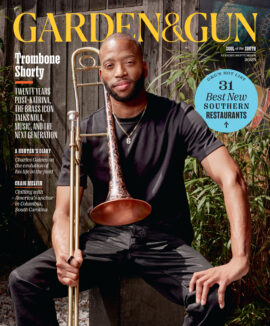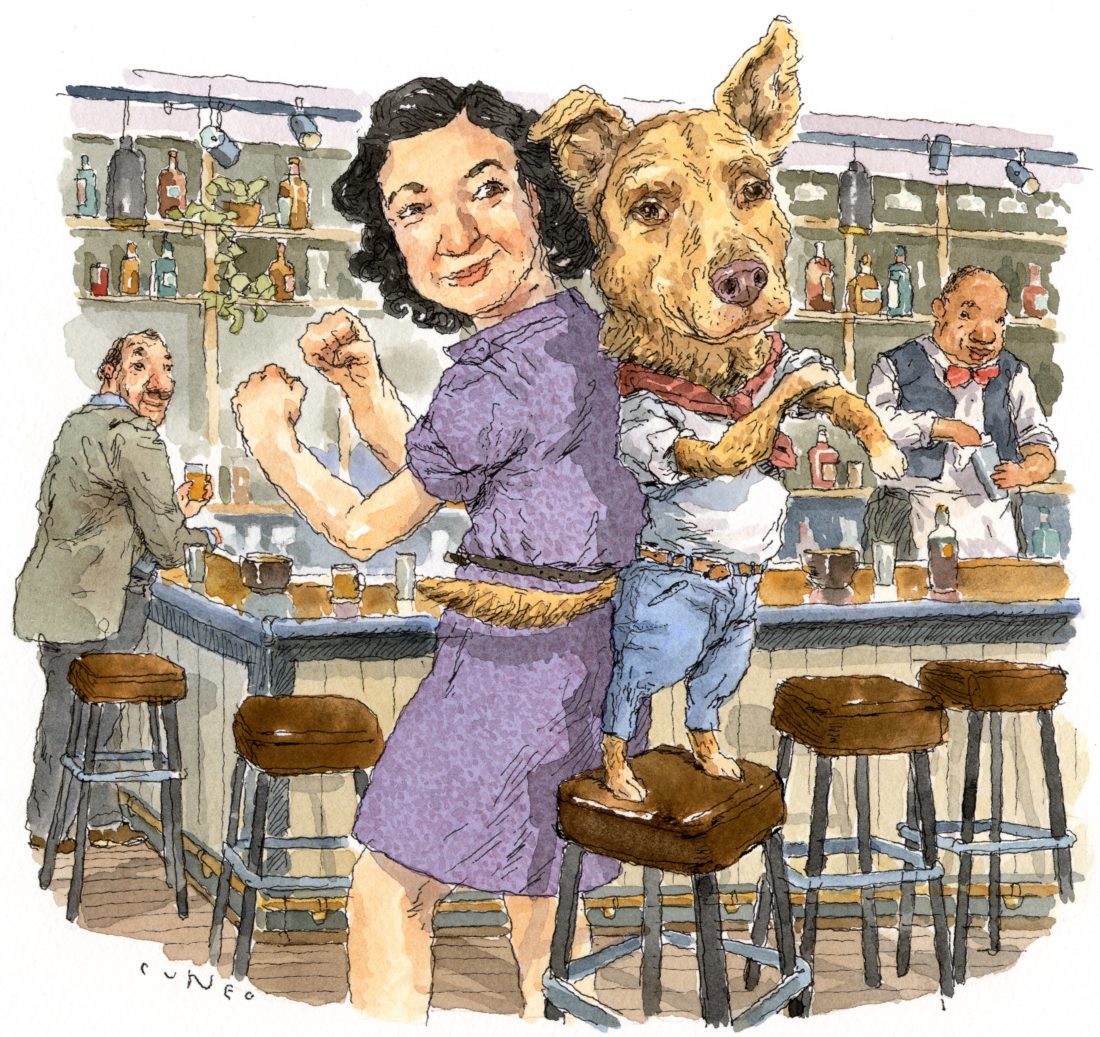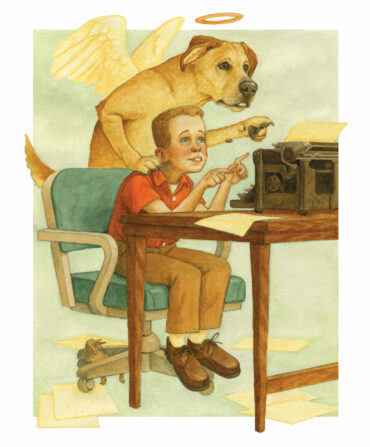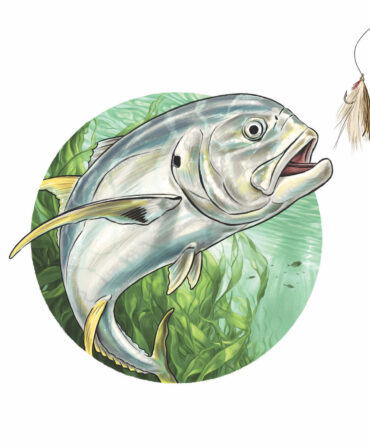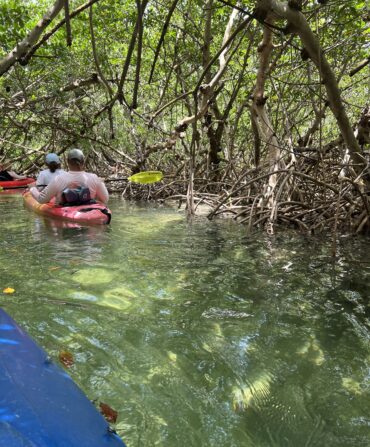I can’t remember how exactly we decided to name our dog Henry Barfight. I’m fairly certain it was the result of a late-night conversation with friends. I do know that once the name was offered up, it stuck.
Henry Barfight is sweet, loyal, and charmingly neurotic. He has soft golden-brown fur that tends to shed, a tail that curls like a fishhook, and one ear that points straight up while the other flops over. He looks especially handsome in bandannas and is especially agreeable to wearing them. He’s sometimes anxious and somewhat timid; if he ever did find himself in a bar fight, he’d surely lose.
Like any good dog owner, I think he’s pretty much perfect.
Henry entered my life in 2007, in what was a summer of firsts. My then fiancé, Jamie, and I were fresh out of college, living in a small apartment in Atlanta, and working our first “real” jobs. Jamie and I had become friends as college freshmen and—after lots of patience on his part—started dating as juniors. Midway through our senior year, we got engaged. The summer after graduation marked a new phase of our relationship; it was the beginning of adulthood. There were new things for us to adjust to, and Jamie soon started petitioning for one more: He wanted a dog.
Jamie was one of the most doglike people I had ever known. He was friendly, outgoing, and full of energy. He had a wonderfully playful spirit, a giant smile, and an uncanny ability to make most anyone feel at ease. Maybe that’s because Jamie grew up with dogs. A lot of them. His parents have always had at least a couple of dachshunds in their household, sometimes six at once. I, on the other hand, had two indoor-outdoor cats as a kid, but neither lasted for long. They both ran away, or something like that. My parents were murky on the details.
I wasn’t sold on the idea of a dog, but Jamie was persistent. He would scroll through the Humane Society website on evenings and weekends “just to look,” pointing out any dogs that were exceptionally cute (most of them, as it turns out). I finally warmed up to a spotted pup named Henry, but he was quickly snatched up. Even so, whenever we talked about our hypothetical dog after that, we’d refer to him as “Henry.”
A few weeks later, a friend called to tell us about a puppy whose owner had skipped town and abandoned him. We arrived to a chaotic scene—a beleaguered young dad and his two hyper children, toys and clutter everywhere, an empty room where the absent owner used to live, and one very excitable six-month-old mutt. We left with him.
“I guess we have to call him Henry,” Jamie said when the three of us got in the car. The name felt good, but not quite right. Later on, we celebrated Henry’s adoption with friends and cheap beers. That’s when we christened him Henry Barfight.
Henry experienced a lot of life with us. Jamie and I got married. I worked as a journalist, and he joined the film industry as a grip—two demanding jobs. We moved from our apartment, to a duplex, to a single-family home. Still, amid all the stress and change, we continued to make each other laugh and pursue hobbies. I liked making home improvements and writing; Jamie liked filming comedy sketches and running. Henry was our companion through it all. He joined us on trips to the North Georgia mountains and Florida beaches, and dutifully posed for family Christmas photos year after year. Together, we learned what it meant to form a family.
In January 2015, we moved to St. Petersburg, Florida, where I’d accepted a job. We spent our first weeks there living in a hotel. The room was small for all of us, but Henry loved it. He had a comfortable bed to lie on, fresh smells to explore, and time with his two favorite people.
Getting to know a new city isn’t easy, but having a dog gave us a reason to go on long walks in different parks and neighborhoods. Once we settled into our house, Jamie and I spent our free moments in St. Pete saying yes to as many invites as we could. Before long, we joined a close-knit group of friends, all of whom quickly fell in love with Henry.
When Henry turned ten, in January 2017, we threw him a birthday party, as enthusiastic dog owners with no children sometimes do. Our friends arrived bearing treats and cards from their dogs. The highlight of the day was going on a group walk through the neighborhood—Henry proudly leading the way while wearing a tiny sparkly blue hat. That was our last party as a family of three.
Just two weeks later, Jamie died. He was running a half marathon and collapsed less than a mile from the finish. The autopsy later revealed that he suffered from a rare and often fatal condition that affected his heart. He was thirty-two.
It sounds silly, but I wasn’t sure how to tell Henry that Jamie had died. When I returned home from the hospital after that fateful race, I could barely look at Henry. For days, he would stare out of our front door, waiting for Jamie. Sometimes I would catch myself doing the same thing.
The early weeks and months after Jamie’s death felt like wading through a dark, soupy, never-ending fog. My grief was so heavy that basic tasks seemed insurmountable. I started looking to Henry for cues. When I felt exhausted, I’d watch him napping on the couch and decide to curl up by his side, listening to his heartbeat and feeling grateful that he was still alive. When I felt restless, Henry would be right there with me, pacing near his leash and nudging me toward the door. I’d watch him drink water and eat his kibble, and I’d think, Oh, right, I should be nourishing myself, too.
I’ve heard from other young widows and widowers that their children kept them going in that first incomprehensible year of grief. For me, my champion of a dog kept me alive.
Henry and I stuck together like glue. Our house seemed bigger in Jamie’s absence, and the two of us took up less space than ever before. We would sit smooshed on the couch and slept spooned together in bed, afraid to leave each other’s side. We took longer and more meandering walks than usual, Henry sniffing and peeing on everything in sight, and me trying to make sense of a world without Jamie.
I sometimes wonder what those early grief days would have been like if Henry hadn’t been around. Would I have gotten outside as often? Would I have had as many reminders that I’m unconditionally loved?
When Jamie first petitioned to adopt a puppy, I wasn’t sure I needed a dog in my life. Now I’m not sure I could have survived without one.
Henry is now twelve years old. By dog-year calculations, he’s about eighty-four—older than the age that Jamie, my dad, and all but one of my grandparents lived to be. He doesn’t have health problems, but I can see the signs of aging in his graying face, his fleeting moments of confusion, the slowness with which he gets up.
Henry has already taught me so much. Now he’s showing me what it’s like to watch someone I love get older and less capable. He reminds me we can’t control what happens to those we care about, but that we can love each other no matter what.
I never expected to face our dog’s death on my own, but here I am. When Henry dies—which could happen tomorrow, or years from now—I will lose another connection to Jamie. It will mark the official end of our family of three.
Sometimes the magnitude of that loss seems unbearable. But I know that I will get through it. And in the meantime, I’ll continue to follow Henry Barfight’s lead; I’ll keep on loving until the very end.

